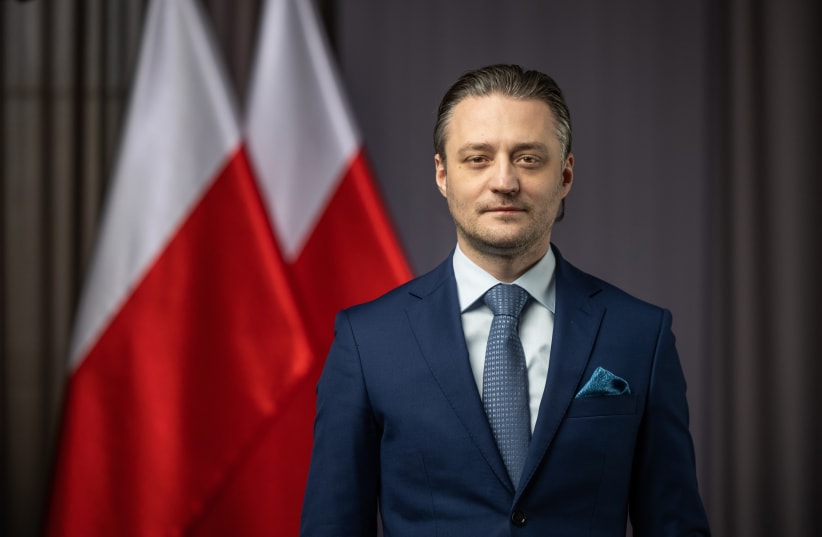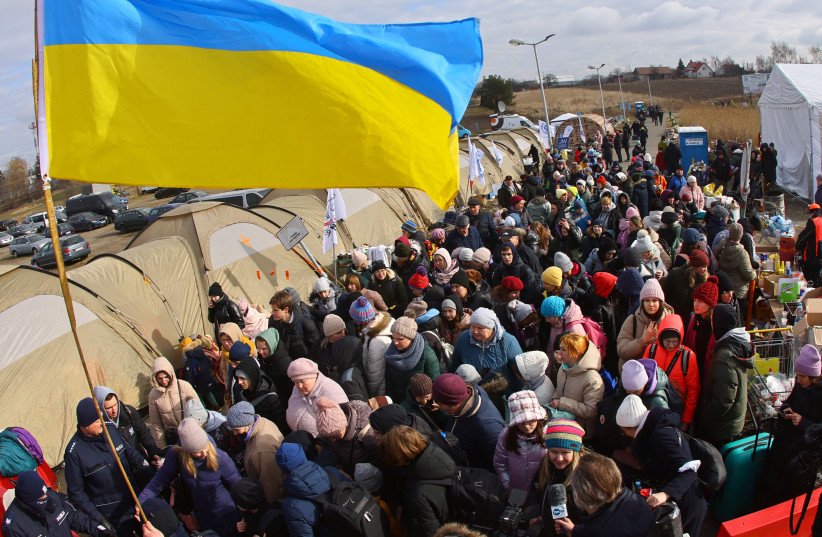Poland is offering a large aid package to refugees from Ukraine who decide to live within its territory, Deputy Minister of Interior Grodecki Bartosz told The Jerusalem Post.
“Citizens of Ukraine have permission to stay for 18 months in the territory of Poland, though, [they] could apply for another three years during which they will have free access to the labor market, social care, schools, and healthcare services,” said Bartosz.
Will you have a limit on the number of refugees that Poland will absorb?
“We don’t have limitations, because we do not know how many of them will flow into our country,” he said. “There is obviously an agreement between the European states that they will all keep the doors open for the refugees from Ukraine.”
Bartosz said that 1,300,000 Ukrainians have entered Poland since the outbreak of the war. He explained that the Polish government has a few steps it is taking in order to assist the refugees from Ukraine.
“When they pass the border, we give them information about what to do next, what will be the next steps in how they are going to proceed,” he said. “Plus, printed leaflets with information in four languages [they get] when they cross the border.”
The first step is “taking them by buses to the first reception center. They get some food over there, and even sleep in these centers. They receive medical care, clothes and other services.”
The second stage is to move the refugees to more stable places to live.
“We need to keep the flow, so we take them to dedicated places so that they can stay there for a longer time, safely – for now,” said Bartosz.
Even though they are trying to “flow” as Bartosz said, he explained that “we have no time limitation in both facilities. Because we really don’t want to make them feel uncomfortable. We just need to politely explain to them: ‘Look, this is the first reception center, we can provide you a better house. But for now, well, we need to keep the flow. So if you don’t mind, we will just transport you and your family to a safer place.’”
The Polish government is operating 35 reception points all over the country, which have served 200,000 refugees. “The average time of being in the reception center is around eight hours,” Bartosz said. “That’s not a lot, but that means that people get warm, eat some food, and then move on.” The Polish government has already supplied housing for 76,717 people in 1,614 facilities.
Explaining how he came to understand at the beginning of the war what was needed, Bartosz said that he “received a phone call from the ambassador of Ukraine in Poland. He said, ‘Look, we allowed women and children to cross. We are keeping the men here because we need them to fight.’ That was a very important moment because, at that time, there were long lines of people waiting to cross the border at the Medyka crossing on the Ukrainian side.”
The Polish government has allocated eight billion Polish zloty, about $1.8b.
Bartosz said that since the refugees are mainly women and children, the aid from the government will be substantial and treat them not only as refugees but also as single parents.
“There is no second parent [present],” said Bartosz. “That means that the children need the protection, which is school and kindergartens.
He said that this is the only way the mothers will be able to actually go out and work.
“We will skip, by law, all the administration processes, giving them equal opportunity to work,” Bartosz said. “At the same time, they will have access to all the services provided by the country and administration of healthcare, as well as social and medical care.”
He added that the refugees will be able to learn Polish in organized institutions, even though he claimed that the languages are similar, and therefore he expects easier assimilation into Polish society. “The administration process is to assimilate them.”
Does any of your work relate to the Jewish communities?
“I am in touch with [Chief Rabbi] Michael Schudrich,” he said. “I would say once or twice a day. He’s our point of contact to the Jewish community. For instance, there was a rabbi from Moscow who needed a fast track to get to Israel. His family has no permission to enter the European Union because they ran out of visas and the rabbi has protested against Putin. He was afraid to stay in Moscow. So, yes, we allowed him and his family to stay in Warsaw, and then they flew to Tel Aviv.”

